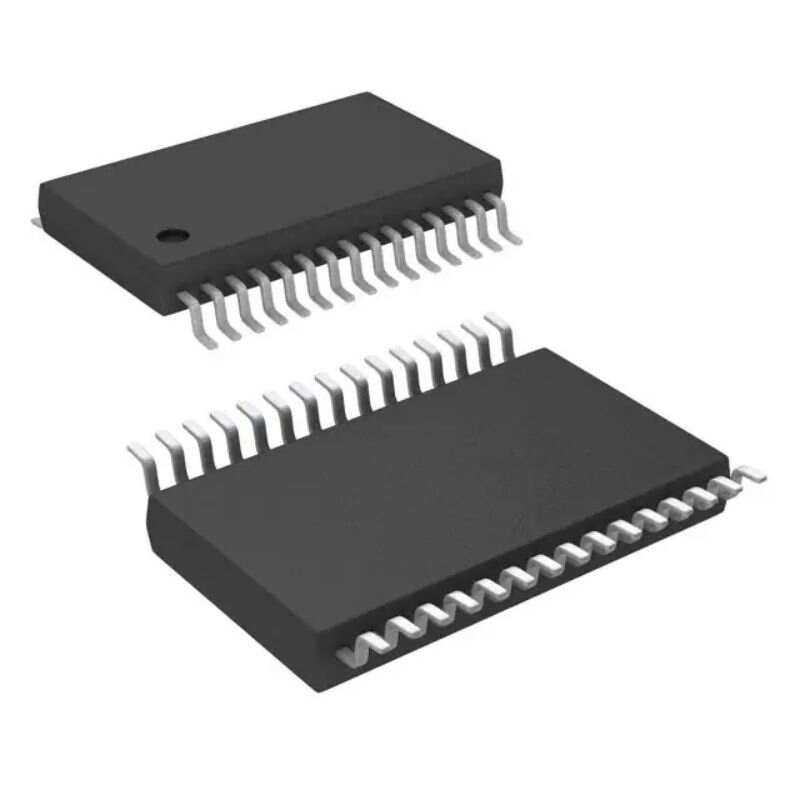Email format error
Email cannot be empty
Email already exists
6-20 characters(letters plus numbers only)
The password is inconsistent
Email format error
Email cannot be empty
Email does not exist
6-20 characters(letters plus numbers only)
The password is inconsistent


Exploring the World of Special Purpose ADCs Import: A Guide for Electronics Industry Professionals
In today’s rapidly advancing technological landscape, Analog-to-Digital Converters (ADCs) are foundational to many industries, providing the critical conversion of analog signals to digital data. Within this space, special purpose ADCs import has become increasingly relevant, especially as industries demand high-precision, customized solutions for specific applications. This guide will explore the various facets of special purpose ADCs, their applications, benefits, and how to import these specialized components effectively.
What Are Special Purpose ADCs?
Special purpose ADCs are designed to meet the unique demands of specific applications that standard ADCs cannot fulfill. Unlike general-purpose ADCs, which serve a broad range of applications, special purpose ADCs are built for precise requirements, such as high-speed data acquisition, low power consumption, or high-resolution data conversion. These ADCs play a significant role in industries such as automotive, aerospace, medical, and telecommunications.
Key Features of Special Purpose ADCs
Special purpose ADCs offer unique features that distinguish them from general ADCs:
- High Resolution: Many special purpose ADCs provide higher resolution for capturing minute signal variations.
- High Sampling Rate: Ideal for applications that require rapid signal processing, such as radar and imaging.
- Low Noise Performance: Reduced noise levels make them perfect for sensitive applications like medical imaging.
- Low Power Consumption: For battery-operated devices, low-power ADCs extend device life while maintaining high performance.
Applications of Special Purpose ADCs
Special purpose ADCs find applications across a wide array of industries, including:
- Automotive Systems: ADAS (Advanced Driver Assistance Systems) and autonomous vehicles rely on ADCs for sensor data conversion to ensure quick and accurate response.
- Medical Imaging: Special purpose ADCs offer the high precision and low noise required for diagnostic imaging equipment.
- Communication Systems: ADCs facilitate high-speed data acquisition for reliable data transmission in networking equipment and cell towers.
- Industrial Automation: Many automation systems use ADCs to monitor and control processes accurately, especially in environments with extreme temperatures or vibration.
Why Import Special Purpose ADCs?
For companies that require high-performance and unique ADC solutions, special purpose ADCs import provides access to cutting-edge technology and specific models not available locally. Importing from global manufacturers allows access to state-of-the-art technology that can support specialized industrial needs.
Benefits of Importing Special Purpose ADCs
- Access to Innovation: By sourcing from international leaders in ADC technology, businesses benefit from the latest advancements.
- Customization Options: Many suppliers offer customization services, adapting ADC specifications to meet precise application requirements.
- Cost-Effectiveness: Importing ADCs from established manufacturers can reduce costs due to economies of scale, competitive pricing, or lower manufacturing costs abroad.
- Quality Assurance: Reputable foreign ADC manufacturers often maintain high-quality standards and provide extensive testing reports.
How to Identify the Right Supplier for Special Purpose ADCs
Selecting the right supplier is crucial for ensuring that your imported ADCs meet your specific technical needs. Here are some factors to consider:
1. Manufacturer Reputation
Reputation is a strong indicator of quality and reliability. Look for manufacturers with a proven track record and positive reviews in the field of ADCs. Many special purpose ADCs importers prefer to work with suppliers known for consistent, high-quality output and reliable customer service.
2. Technical Support and Documentation
Technical support is essential when dealing with high-complexity components. A good supplier will provide comprehensive documentation, including datasheets, application notes, and installation guides.
3. Customizability
Different applications have unique requirements, so it is beneficial to partner with a manufacturer who offers custom ADC solutions. Customizable parameters may include resolution, sampling rate, input range, and package options.
4. Cost and Shipping Considerations
Cost should be evaluated carefully, as shipping fees, taxes, and potential tariffs can affect the final cost of imported ADCs. Compare shipping costs and delivery times to ensure you get a reliable deal without unnecessary delays.
The Import Process for Special Purpose ADCs
To import ADCs effectively, it’s important to follow a well-planned import strategy. Here’s a step-by-step breakdown of the process:
Step 1: Research and Source Reliable Manufacturers
Identify reputable manufacturers specializing in ADCs. Attend trade shows, consult industry forums, and leverage online directories to find trusted suppliers.
Step 2: Compliance and Quality Standards Check
Ensure that the products meet both the manufacturer’s standards and your country’s compliance requirements. For electronics, industry standards such as ISO 9001 and ISO 13485 (for medical devices) are often important.
Step 3: Place an Initial Order for Testing
It’s advisable to start with a smaller order to verify the quality and compatibility of the ADCs. Testing an initial batch allows you to assess performance and confirm that the product aligns with your application needs.
Step 4: Monitor Shipping and Handling
Work with a freight forwarder who has experience in importing electronics. Special purpose ADCs often require careful handling to prevent damage.
Step 5: Customs Clearance and Documentation
Each country has specific customs regulations. Ensure you have all the required paperwork, including commercial invoices, product specifications, and compliance certificates.
Common Challenges in Special Purpose ADCs Import
1. Complex Documentation Requirements
Countries have different regulations for importing electronics. It’s essential to have detailed technical documentation on hand, including compliance reports, product certifications, and HS codes.
2. Currency Exchange Rates
Fluctuations in exchange rates can affect the overall cost of importing ADCs. Keeping track of currency trends and using financial tools to hedge against risk can be beneficial.
3. Shipping and Lead Times
Electronics often require careful packing and can have longer lead times. Working with a reliable logistics provider helps avoid delays and potential damage to the sensitive ADC components.
4. Quality Control Concerns
Quality control is vital when sourcing specialized components internationally. Request quality certifications, conduct performance tests upon arrival, and work with suppliers who have a clear return and refund policy.
Future Trends in the Special Purpose ADC Market
The demand for special purpose ADCs continues to rise as industries increasingly rely on data-driven insights and automation. Several emerging trends are shaping the future of this market:
1. Higher Resolution and Speed Demands
As systems require higher levels of precision and faster data acquisition, the need for high-resolution, high-speed ADCs will grow. Manufacturers are developing ADCs with enhanced signal-to-noise ratios and faster sampling rates.
2. Integration of AI and Machine Learning
AI and machine learning are influencing the design of ADCs by enabling real-time data analysis and predictive insights. Special purpose ADCs equipped with on-board processing capabilities are becoming more common to support AI-driven applications.
3. Increased Emphasis on Low Power Consumption
With sustainability and power efficiency becoming essential, low-power ADCs are likely to see significant advancements. This trend is particularly relevant in the automotive and IoT sectors, where energy efficiency is critical.
4. Growth in Medical and Industrial Applications
Special purpose ADCs are experiencing growing demand in the medical field for applications like ultrasound and MRI, as well as in industrial settings for automation and control systems. These areas will continue to drive innovation and require high-performance ADCs.

Conclusion: Is Special Purpose ADCs Import Right for Your Business?
Importing special purpose ADCs can open doors to advanced technology and custom solutions that enhance performance and productivity in specialized applications. Whether you’re working in automotive, medical, telecommunications, or industrial automation, sourcing ADCs from trusted global suppliers offers access to unparalleled customization, quality, and cost savings.
By following a structured import process, carefully evaluating suppliers, and staying aware of industry trends, businesses can successfully navigate the complexities of importing special purpose ADCs. As the demand for high-performance, specialized ADCs grows, businesses that embrace these advanced solutions will likely maintain a competitive edge in their respective industries.

